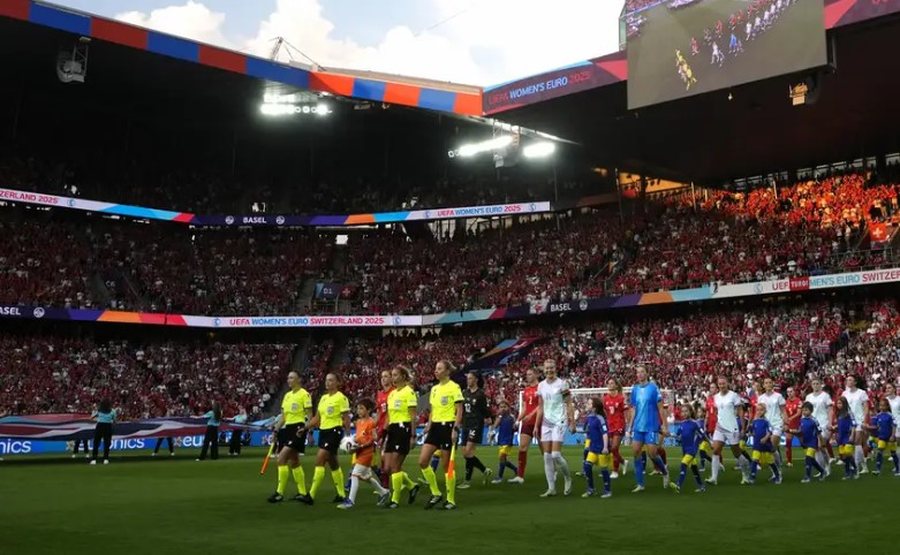
The organizers of the European Women's Football Championship, which will be held in Switzerland, have a special focus on human rights. In this regard, they are benefiting from the experience with the Euro 2024 men's tournament in Germany.
"We in Germany have given an important impetus, which is still being developed," says Sylvia Schenk from Transparency International in Germany. The lawyer and former athlete was on UEFA's Human Rights Council during the 2024 European Men's Football Championship, along with other representatives of non-governmental organizations. This forum dealt with complaints about human rights violations during the championship.
UEFA, the German Football Association, the German government and the governments of the participating countries, as well as the ten host cities, pledged to ensure that "democracy, respect, equality and the development and protection of human rights" would be at the forefront of the European Championship. "This was just the beginning," Schenk concluded in an interview with DW. "But it was important. We have been fighting for this for years.
EURO 2024 as a model for EURO 2025
The commitment during the men's championship will serve as a model for the European Women's Football Championship, which takes place from July 2 to 27 in Switzerland. The Swiss government, as well as the governments of the countries participating in the championship, as well as various institutions and associations, signed a declaration last March (2024) in which they declare their commitment to human rights and in particular to "Diversity, equality and inclusion in and through sport", as expressed by the Swiss Minister of Sports Viola Amherd.
Even for the women's championship, a human rights council has been created by non-governmental organizations based in the Centre for Sport and Human Rights.
The authorities have approached the council whenever human rights were deemed to be at risk during the European Championship, says Lisa Salza, human rights officer at Amnesty Switzerland. "Although some measures are not as extensive as one would like, this initiative is a step in the right direction," Salza tells DW. "It is important that during this championship the rules of conduct are respected in the stadium" and in the nerve centers of the French, such as train stations: "Zero tolerance for discrimination, racism and sexual violence."
Anyone who feels threatened and discriminated against in the stadiums can scan the QR code, which is clearly visible on the posters. The affected fan then immediately receives help from the so-called "Awareness Teams".
Complaints about human rights violations can also be communicated via the championship or UEFA app. An independent legal body assesses the complaints and, if deemed necessary, communicates them further to the responsible bodies.
During the 2024 men's tournament, a law firm in Frankfurt was responsible. It handled nearly 400 complaints. Most of the cases concerned political statements, nationalist statements, gestures or symbols used by fans. Only a few cases were reported for sexual harassment and racial discrimination.
UEFA: "META, X and TikTok continue to collaborate with us"
Another important point is the fight against cyberbullying. During Euro 2024 in Germany, around 700 social media accounts of players, coaches and referees were monitored. According to UEFA, 666 posts with offensive content were reported in the group stage alone. In three out of four cases, the posts were directed against the players, in over 90 percent in the form of hate speech./ DW (A2 Televizion)











